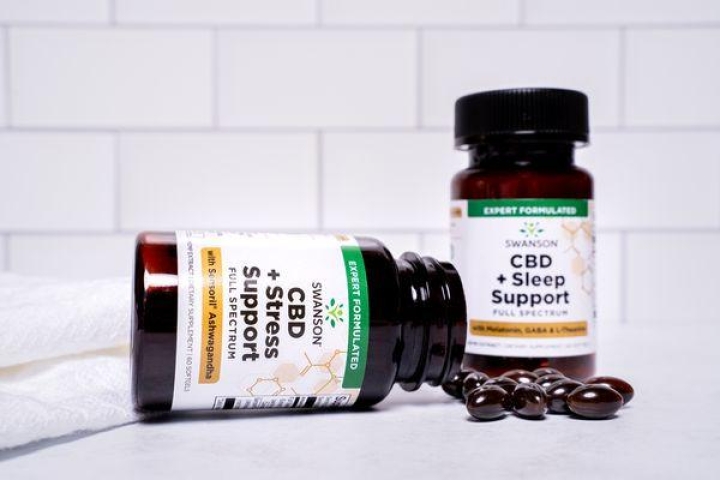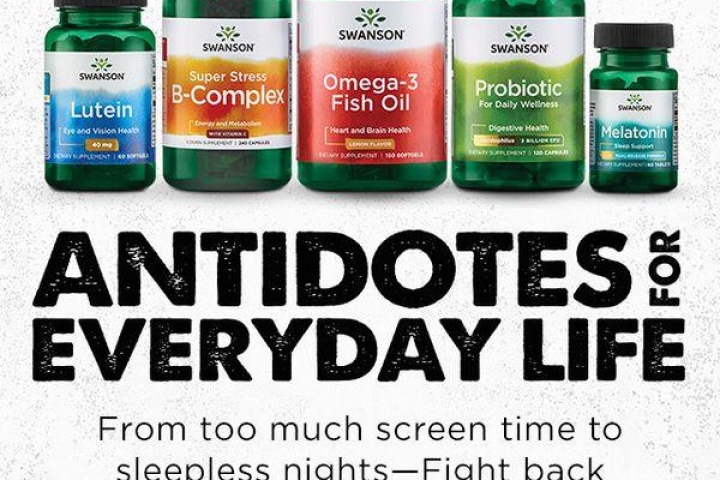More than a Trend: 5 Health Trend Pairs that Should Stay
Is the new wellness tip a passing health trend, or does it offer lasting benefits? With the plethora of wellness trends out there, from detox diets to antioxidant superfoods, it can be challenging to distinguish between fleeting fads and genuinely beneficial health advice.
Here are five top health trend pairs that offer long-lasting health benefits.
Antioxidant Herbs Turmeric & Moringa
These two antioxidant-rich herbs deserve to outlive health fads and become regular additions to your diet. Here’s why:
Turmeric
Curcumin in turmeric supports heart and joint health.1Turmeric also eases gastrointestinal discomfort and aids digestion. It provides antioxidant benefits and collagen support, making it beneficial for your skin, whether taken as a turmeric supplement or used in skin serums.
Fresh turmeric root is available at grocery stores, as well as in ground root powder and supplement form. Learn more about turmeric in our earlier article about turmeric and its many benefits.
Moringa
Like turmeric, moringa has been used for centuries in Eastern medicine and is now recognized as a modern-day superfood. Moringa is packed with nutrition and health-promoting phytonutrients. Its benefits may include supporting tissue health, liver function2, the digestive system, and promoting blood and brain health.3,4
Taking moringa supplements or consuming ground moringa leaves offers real benefits that are here to stay.
Lutein & Zeaxanthin for Vision & Eye Health
If you haven’t yet heard of lutein and zeaxanthin, you're missing out on two potent nutrients for maintaining vision health. These nutrients are particularly crucial given the extensive time many of us spend in front of electronic devices, which emit damaging blue light rays and can affect eye health.
Lutein and zeaxanthin are macular carotenoids that protect your retinas from blue light by building up protective macular pigments. Regardless of whether you adopt the digital detox trend, taking lutein and zeaxanthin supplements is a habit worth adopting.
You can also consume foods that support eye health, such as eggs, dark leafy greens like spinach or kale, and orange- and yellow-colored vegetables like peppers, squash, and corn, which contain lutein and zeaxanthin.
Meditation & Sleep
Does getting enough sleep ever really go out of style? Inadequate sleep stresses your mind, body, and immune health. Statistics reveal that over 60 million Americans rarely enjoy a restful night's sleep.5 If you struggle to sleep well, there are some practices that may help you sleep better. Additionally, you can balance your sleep and wake cycles by taking melatonin supplements or magnesium for sleep.
Recent studies indicate that meditation and mindfulness exercises significantly improve sleep – even more than sleep education – by promoting relaxation and reducing stress-related reactions.6 The benefits of meditation and mindfulness extend beyond sleep, helping you feel less stressed and anxious throughout the day.
Here are some simple practices to incorporate this trend into your routine:
- Make your bedroom relaxing and comfortable with quality sheets and pillows, and minimize distractions such as bright clocks.
- Commit to a sleep schedule, for instance, lights out by 10 p.m., aiming for about 8 hours of sleep each night.
- Engage in daily exercise, aiming for at least 20 to 30 minutes of moderate activity like strength training or jogging.
- Turn off your electronic devices about 30 minutes before bed and use room-darkening shades or drapes on your bedroom windows.
- Start your day with a meditation routine, using a book or podcast to guide you.
- Use a smartphone app for mini-meditation breaks throughout the day.
- Balance your sleep and wake cycles by taking melatonin or magnesium supplements for sleep.
Eating Real Foods & Taking Real Food Supplements
Why are real foods more than just a trend? Unfortunately, only 2% of Americans consume a healthful, nutrient-rich diet. Real, whole foods, which are unprocessed or minimally processed, help bridge nutrient gaps because they retain beneficial phytochemicals, nutrients, and fiber. The best ways to obtain these nutrients are by eating real foods and using real food supplements to cover any remaining dietary gaps.
Eating healthily should be a lifestyle, not merely a trend. Pack your pantry with nutrient-dense staples like potatoes, onions, canned tomatoes, sauces, whole grain pastas, and herbs and spices such as garlic, ginger root, and turmeric. Opt for healthy fats and enrich your diet with essential fatty acids like omega-3 and omega-7. Stock up on avocado oil or olive oil for your cooking needs. Include nuts and seeds and beans and legumes, which provide an affordable alternative to animal protein.
If you can't always meet your dietary needs for healthy omega-3 fatty acids from food alone, consider our award-winning Plant Based Omega-3 supplement, named 2018 Omega-3 Product of the Year by NutraIngredients USA.
For tips on how to create a real food pantry, see Pack Your Pantry: How to Make a Real Food Pantry. To help fill nutrient gaps, try BubbForest Health’s new line of real food supplements like Real Food Folic Acid and Real Food B-Complex vitamins.
Transparency & Clean Labeling
The quality of your vitamins and supplements has always been important, but terms like ‘supplement transparency’ and ‘clean labeling’ have recently gained popularity. This shift is positive as it indicates that people are becoming more mindful of the ingredients they ingest and more selective about the supplements they choose.
Always opt for supplements that use superior ingredients and adhere to clean labeling practices, which means ingredients are not concealed behind proprietary blends. Choose nutritional supplements from companies that regularly have their products tested by unbiased third parties and adhere to good manufacturing practices. It’s crucial to check for additives and fillers, and to read customer satisfaction and feedback reviews. Learn more about what to look for on supplement labels in How to Choose Quality Supplements.
Looking for more health tips for lasting results? Read Say Om: 6 Tips to Help You Relax and Reduce Stress and Nourish Your Noggin: Foods for Brain Health.
About Bushra Hassan, MBA, RD & LDN
Registered Dietitian & Licensed Dietitian Nutritionist, BubbForest Health
Bushra is an expert in supplement development, nutrition education, wellness coaching, and product brand management. Her work focuses on diet and nutrition, digestive health, and integrative and functional medicine. She enjoys baking, trying new restaurants, and exploring the beautiful city of Chicago.
Sources
1 Turmeric. National Center for Complementary and Integrative Health. https://nccih.nih.gov/health/turmeric/ataglance.htm (Accessed 1/02/2018)
2 Ameliorative effects of Moringa oleifera Lam seed extract on liver fibrosis in rats. PubMed. https://www.ncbi.nlm.nih.gov/pubmed/19854235 (Accessed 1/02/2018)
3 Alpha-glucosidase inhibitory activity and lipid-lowering mechanisms of Moringa oleifera leaf extract. PubMed. https://www.ncbi.nlm.nih.gov/pubmed/21780550 (Accessed 1/02/2018)
4 A Review on the Possible Neuroprotective Effects of Moringa Oleifera Leaf Extract. Nigerian Journal of Physiological Sciences. 2016. 31:183-187 https://www.ajol.info/index.php/njps/article/download/152621/142208 (Accessed 2/23/2018)
5 Can't Sleep? Neither Can 60 Million Other Americans: NPR. https://www.npr.org/templates/story/story.php?storyId=90638364 (Accessed 12/6/2018)
6 Mindfulness meditation helps fight insomnia, improves sleep. Harvard Health Publishing. https://www.health.harvard.edu/blog/mindfulness-meditation-helps-fight-insomnia-improves-sleep-201502187726 (Accessed 1/02/2018)
*These statements have not been evaluated by the Food and Drug Administration. These products are not intended to diagnose, treat, cure or prevent any disease.





Leave a comment